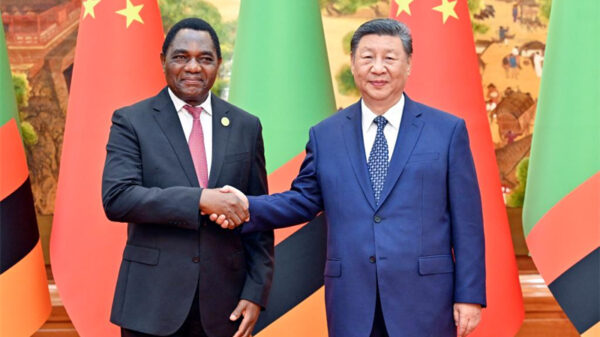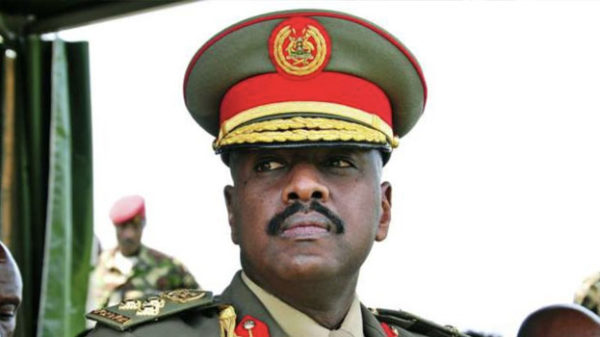In a world characterized by globalization and interconnectivity, diplomatic engagements between nations often hold the key to unlocking opportunities and propelling nations towards greater prosperity.
That’s why the visit by Kenya’s President William Ruto to China for a State Visit, that includes the Belt and Road Initiative (BRI), has set the stage for a new chapter of cooperation between the two nations, heralding a wealth of possibilities for Kenya’s economic growth and development.
Kenya has long been a strategic partner with China, and President Ruto’s visit reinforces the commitment to further enhance this relationship. During this visit, President Ruto met with Chinese officials, held discussions on various aspects of cooperation, and witnessed the signing of several crucial agreements. These developments are expected to have a profound impact on Kenya’s economy, infrastructure, and technological advancements.
Fostering Economic Ties and Business Deals
One of the most significant outcomes of President Ruto’s visit to China was the signing of business deals worth KSh63 billion. These agreements span various sectors, including ICT, pharmaceuticals, and engineering. This step underscores the mutual desire of both nations to bolster their economies and create a conducive environment for businesses to thrive.
Among the notable highlights was the signing of a Memorandum of Understanding (MoU) between the Kenyan government and Huawei, a Chinese tech giant. This MoU encompasses collaboration in enhancing Kenya’s ICT infrastructure and promoting digitalization across multiple sectors, such as transportation, e-government, education, and digital energy. As Kenya continues to embrace the digital age, these initiatives will play a pivotal role in advancing the country’s technological landscape.
Furthermore, a separate agreement between Kenya and China’s Energy International Group is set to revolutionize Kenya’s power system. This pact aims to increase reliability, efficiency, and modernize the nation’s energy infrastructure, addressing a crucial aspect of Kenya’s development agenda.
Boosting Infrastructure Development
President Ruto’s discussions with Chinese officials also emphasized the importance of strengthening Kenya’s infrastructure. The construction of new roads, expansion of the Standard Gauge Railway, modernization of airports, and advancements in the ICT sector are among the key projects that are likely to see increased Chinese investment. These developments will not only enhance Kenya’s transportation network but also provide a significant boost to its technological capacity.
The collaboration between Kenya and China on these infrastructure projects is a testament to the win-win cooperation model that characterizes China’s engagements with its global partners. Rather than exploiting Africa, as some perceptions may suggest, China’s Belt and Road Initiative (BRI) has played a pivotal role in transforming Africa and facilitating its integration into the global economy.
In Kenya, projects like the Expressway linking Jomo Kenyatta International Airport to Westlands, the Nairobi-Mombasa Standard Gauge Railway, and the Thika Superhighway are stark examples of the positive impact of Chinese investment in the East African nation. The skyline-altering Global Trade Centre (GTC) towers in Nairobi further highlight China’s commitment to Kenya’s urban development.
A Beacon for African Transformation
Kenya’s position as a major beneficiary of the BRI illustrates the transformative power of this initiative across the African continent. The BRI has played a critical role in enhancing African integration, industrialization, energy access, and infrastructure development – all key priorities outlined in the African Union’s Agenda 2063. The development of railways, roads, and ports has significantly improved transportation and trade, not only between China and Africa but also among African nations themselves.
Within the energy sector, China has financed over 36 projects in at least 19 African countries, and the establishment of economic and trade cooperation zones in 16 African nations has spurred investment flows and created job opportunities. These endeavors have ushered in an era of economic and infrastructural transformation across the continent, with Kenya at the forefront of these positive changes.
As President Ruto concludes his visit to China, Kenya finds itself at the cusp of remarkable development. The multi-billion-dollar agreements and partnerships inked during this visit promise to propel the nation’s growth and its embrace of technology and innovation. In the spirit of win-win cooperation, Kenya’s journey towards prosperity is intrinsically linked with its enduring partnership with China.
The global landscape is evolving, and for Kenya, the future is ripe with opportunities that are poised to elevate the nation to new heights.
There is no doubt that President Ruto’s diplomatic mission to China serves as a beacon, guiding Kenya toward a path of shared prosperity, sustainable development, and a promising future on the global stage.
Elijah Mwangi is a scholar based in Nairobi; he comments on local and global matters.















































